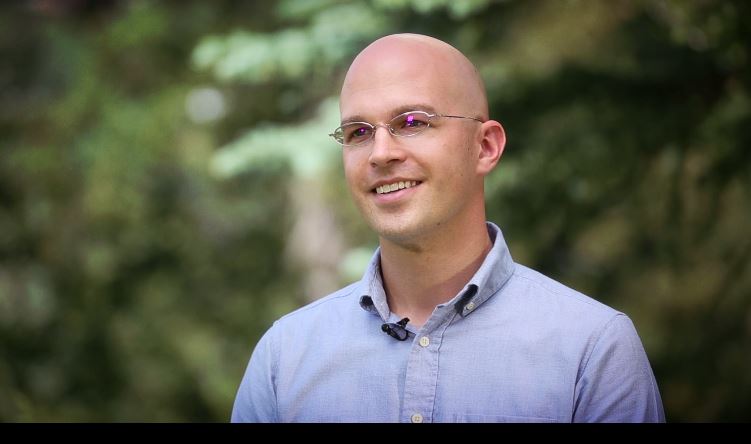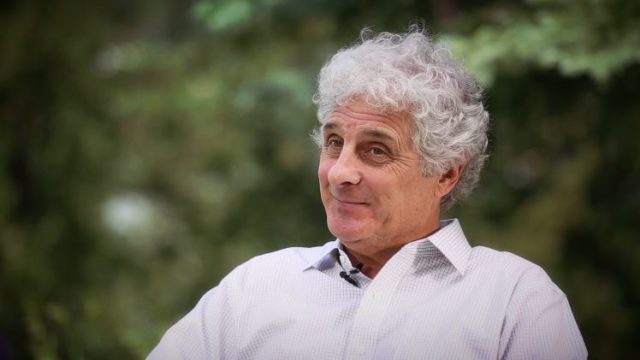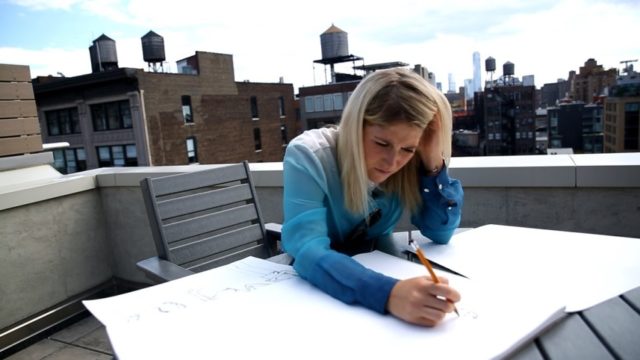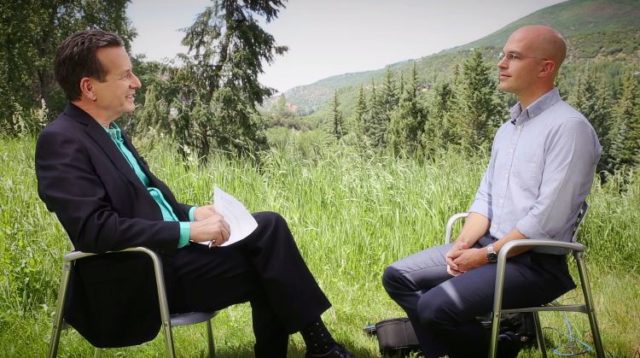The human brain weighs a little more than a kilogram and we use it every moment of every day. Yet, so much about our brain remains a mystery.
This week on Full Frame, we’ll meet some of the field’s top researchers who are unlocking the power of the brain.
Josh Kaufman: Learning anything fast

Best-selling author Josh Kaufman explains how to learn anything, fast!
Imagine learning a brand new skill, anything, in just 20 hours. From speaking a new language or playing an instrument to riding a windsurfing board or even taking amazing photographs.
Best-selling author Josh Kaufman says it can be done. And, forget the 10,000-hour rule; he says all you need is what he calls the “Rapid Skill Acquisition” to learn any new skill in just a matter of weeks.
Mike Walter recently sat down with Josh Kaufman, author of the book, “The First 20 Hours”, at the annual Aspen Ideas Festival to discuss his amazing learning method.
Dr. Miguel Nicolelis: Beyond the brain’s boundaries

Duke University neuroscientist Dr. Miguel Nicolelis discusses his pioneering brain-machine interfacing research.
In 2014, millions around the world watched as a 29-year-old paraplegic from Brazil used a mind-controlled robotic suit to kick the official ball during the FIFA World Cup opening ceremony. While it was a brief moment, it was a kick that was years in the making.
The decades of research by Duke University neuroscientist Dr. Miguel Nicolelis, made that World Cup soccer kick a reality. His pioneering brain-machine interfacing research could mean millions of injured people will, one day, be able to walk again.
From Sao Paulo, Dr. Miguel Nicolelis talks with Mike Walter in our Los Angeles studio.
And although the “brain-to-brain” communication that Dr. Nicolelis’ research may one day become a reality, there is something you can do right now to ensure your brain’s vitality. Researchers are finding that physical activity, especially aerobic exercise, has a significant positive impact on brain function, from improving learning to preventing dementia. Full Frame Contributor Sandra Hughes finds out why hitting the gym could be just as beneficial to your brain as to your body.
Dr. Andrew Meltzoff: Born Learning
Connect with Dr. Meltzoff on Facebook

Internationally renowned infant and child development expert Dr. Andrew Meltzoff explains how a baby’s brain learns.
For adults, learning a second language can be incredibly difficult, but it’s much easier for toddlers and young children. Why is that?
Researchers are trying to figure out the wonders of a baby’s brain and what it can teach us about human cognition.
One of the leading researchers in the field is internationally renowned infant and child development expert Dr. Andrew Meltzoff. His 20 years of research, particularly about the importance of role models in a child’s development, has had far-reaching implications for cognitive science.
American psychologist Dr. Andrew Meltzoff, co-director of the Institute for Learning and Brain Sciences at the University of Washington, recently sat down with Mike Walter at the annual Aspen Ideas Festival to discuss his research.
Wearable Experiments: Fashion’s future

Billie Whitehouse, co-founder of Wearable Experiments, designs fashion’s future.
Imagine a shirt that lets you feel your favorite athlete’s excitement when he or she scores a goal, or wins a race. Billie Whitehouse, not only imagined this, she designed it. Her company, Wearable Experiments brings fashion and technology together to produce a functional piece of clothing. The “Alert Shirt” is a fan jersey that uses wearable technology to take the fan experience into the physical world, allowing fans to feel what the players feel during the game.
By continuing to incorporate hardware and software into clothing, Wearable Experiments hopes to take fashion to the next level.
Connect with Wearable Experiments on Facebook
 CGTN America
CGTN America Josh Kaufman talks with Mike Walter about learning anything in just 20 hours.
Josh Kaufman talks with Mike Walter about learning anything in just 20 hours.
